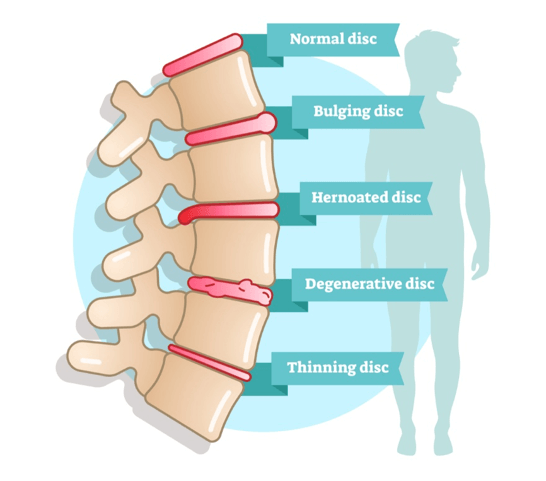Mitigate Pain Clinic – Dr Jeshnu Tople – Pain Management Specialist In Nagpur
Meet Our Doctor

INTERVENTIONAL PAIN AND SPINE SPECIALIST
Dr. Jeshnu Tople
MBBS, DA, DNB, FIAPM, FIPM, FIPP (USA), EDPM (Belgium)
- MBBS from Wardha, Maharashtra
- Diploma in Anaesthesiology from Wardha, Maharashtra
- DNB (Anaesthesiology) from New Delhi
- Fellowship in Pain Management (affiliated to Aesculap Academy, Germany)
- Fellowship of Indian Academy of Pain Medicine from Daradia Pain Hospital, Kolkata
Our Testimonials


Ishan Gadekar

Srujan Topale

Disc Herniation/Bulge Treatment In Nagpur
Disc Herniation/Bulge Treatment in Nagpur:
If you are suffering from the intense pain caused by a herniated or bulging disc, you understand how debilitating it can be. The good news is that effective treatment for disc herniation and bulging discs in Nagpur is available to help alleviate your pain, restore your mobility, and improve your quality of life. With advanced diagnostic tools and a variety of treatment options, Nagpur specialists are here to guide you towards a path of healing.
What is Disc Herniation/Bulge?
A disc herniation or bulging disc occurs when one of the rubbery cushions (discs) that sit between your vertebrae in the spine slips out of its normal position or ruptures. This can cause pressure on nearby nerves, resulting in pain, numbness, tingling, and weakness. It often occurs in the lower back (lumbar spine) or neck (cervical spine), and can be caused by factors such as:
- Age-related wear and tear (degenerative disc disease)
- Traumatic injury or accident
- Improper lifting or twisting motions
- Poor posture and lack of exercise
Common Symptoms of Disc Herniation/Bulge
The symptoms of a herniated or bulging disc can vary depending on the location and severity of the injury. Common signs include:
- Sharp or shooting pain in the back, neck, arms, or legs
- Numbness or tingling in the limbs
- Muscle weakness in the affected area
- Limited range of motion due to pain and discomfort
- Pain that worsens when sitting or bending
Treatment Options for Disc Herniation/Bulge in Nagpur
When it comes to treating a bulging or herniated disc in Nagpur, several options are available depending on the severity of the condition. These include:
- Physical Therapy: A customized rehabilitation program designed to strengthen the muscles surrounding your spine, improve flexibility, and relieve pressure on the disc and nerves.
- Medications: Over-the-counter pain relievers, muscle relaxants, or anti-inflammatory drugs to manage pain and reduce inflammation.
- Chiropractic Care: Spinal adjustments and manual therapies help align the spine, relieve nerve pressure, and reduce pain.
- Epidural Steroid Injections: If pain is severe, injections around the affected nerve can help reduce inflammation and provide temporary relief.
- Laser Therapy: Non-invasive treatments such as laser therapy can stimulate healing, reduce pain, and accelerate recovery by targeting the affected disc.
- Surgery: In rare cases, if conservative treatments do not work, surgery may be recommended to remove the damaged portion of the disc or to relieve pressure on the nerve.
Why Choose Disc Herniation Treatment in Nagpur?
Nagpur is home to some of the most skilled spine specialists and experienced physiotherapists, offering personalized care for patients with bulging or herniated discs. Here’s why you should consider seeking treatment in Nagpur:
- Expert Care: Nagpur’s specialists have extensive experience in treating disc herniation and bulging discs, offering expert guidance on both non-surgical and surgical treatment options.
- Comprehensive Diagnostics: Using advanced imaging tools like MRI and CT scans, specialists in Nagpur can provide an accurate diagnosis and determine the best course of treatment.
- Customized Treatment Plans: Based on your symptoms and lifestyle, your treatment plan will be personalized to target your specific needs and provide lasting relief.
- Convenient Access: With local clinics and hospitals, follow-up visits are easy to schedule, ensuring continued care and support as you recover.
How to Choose the Right Disc Herniation Specialist in Nagpur?
When selecting a specialist for disc herniation and bulging disc treatment in Nagpur, consider the following:
- Experience and Expertise: Look for a specialist with a proven track record in treating spinal issues, particularly herniated or bulging discs.
- Comprehensive Approach: Choose a specialist who offers a full range of treatments, from conservative therapies to advanced surgical options, to ensure you have access to the most appropriate care.
- Patient Reviews and Testimonials: Check patient reviews and testimonials to gauge the quality of care provided by the specialist and their clinic.
- Accurate Diagnosis and Personalized Care: A good specialist will perform a thorough assessment, offer accurate diagnosis, and recommend personalized treatments that align with your health needs and goals.
What is Disc Herniation or Bulging Disc?
A disc herniation or bulging disc occurs when one of the cushions (discs) between the vertebrae in your spine becomes damaged. In a herniated disc, the soft inner material of the disc leaks out, irritating nearby nerves. In a bulging disc, the disc pushes out of its normal boundary but doesn’t rupture. Both conditions can cause severe pain and discomfort, particularly when the nerves become compressed.
Common Symptoms of Disc Herniation or Bulging Disc
Symptoms of a herniated or bulging disc can vary, but often include:
- Sharp or shooting pain in the lower back, neck, or limbs
- Numbness or tingling in the arms, hands, legs, or feet
- Muscle weakness or difficulty moving the affected limbs
- Pain that worsens with activities like sitting, standing, or bending
- Limited range of motion in the back or neck
Available Treatment Options for Disc Herniation/Bulging Disc in Nagpur
When seeking treatment for a herniated or bulging disc, it’s essential to choose an experienced specialist who can offer comprehensive care. In Nagpur, several treatment options are available, depending on the severity of your condition:
Physical Therapy: Physical therapy involves specific exercises that strengthen the muscles around your spine, improve flexibility, and reduce pressure on the affected disc. It is often the first line of treatment for disc herniation.
Medications: Over-the-counter pain medications, muscle relaxants, and anti-inflammatory drugs can help control pain and inflammation associated with bulging or herniated discs.
Chiropractic Care: Spinal adjustments performed by a chiropractor can relieve nerve pressure, restore spinal alignment, and reduce pain caused by disc herniation.
Epidural Steroid Injections: For more severe pain, an injection of steroids around the affected nerve can reduce inflammation and provide relief.
Laser Therapy: Non-invasive laser treatments help stimulate the healing of damaged discs, promote recovery, and reduce pain.
Surgical Options: If conservative treatments fail, surgery may be necessary to remove the damaged portion of the disc or to relieve nerve pressure. Minimally invasive procedures, such as microdiscectomy, are often recommended.

FAQ's For Disc Herniation/Bulge Treatment In Nagpur
A disc herniation occurs when the inner, gel-like substance of a spinal disc leaks out, pressing on nearby nerves. A bulging disc happens when the disc protrudes but does not rupture. Both conditions can lead to significant pain and discomfort.
Disc herniation or bulging is often caused by wear and tear due to aging, traumatic injury, poor posture, improper lifting, or repetitive strain on the spine. It can also occur due to a sudden movement or accident that puts stress on the spinal discs.
Symptoms include sharp or radiating pain in the neck, back, arms, or legs, numbness or tingling, muscle weakness, and difficulty moving. Symptoms often worsen with certain activities like bending, lifting, or sitting for long periods.
You should seek treatment if the pain becomes severe, lasts for more than a few days, or interferes with your daily activities. If you experience numbness, weakness, or difficulty controlling your bladder or bowels, immediate medical attention is necessary.
Non-surgical treatments include physical therapy, medications (anti-inflammatory drugs, muscle relaxants), chiropractic care, and epidural steroid injections. These treatments aim to reduce inflammation, relieve pain, and improve spinal function.
Surgery is usually considered a last resort after conservative treatments have failed. Surgical options, such as a discectomy or microdiscectomy, are only recommended for severe cases or when there is a risk of nerve damage.
Recovery time varies depending on the severity of the condition and the treatment used. Mild cases may improve within a few weeks with physical therapy, while more severe cases may take several months. Surgery may require several weeks to months for full recovery.
Yes, physical therapy is an important part of treatment. A physical therapist will guide you through exercises that strengthen the muscles around your spine, improve flexibility, and reduce pressure on the affected disc, helping to alleviate pain and prevent future issues.
Epidural steroid injections deliver corticosteroids directly into the area around the affected nerve, reducing inflammation and pain. This can provide relief for several weeks or months and is often used when other treatments have not been effective.
Chiropractic care focuses on spinal adjustments to align the spine properly, reducing nerve pressure and improving spinal function. Many patients with herniated or bulging discs find chiropractic treatments beneficial for managing pain and restoring mobility.
Our Treatments
- Joint Pain
- Back Pain
- Sciatica Pain
- Neck Pain
- Hand Pain
- Shoulder Pain
- Foot & Ankle Pain
- Limb Pain
- CRPS Pain
- Cancer Pain
- Headache
- Hyperhidrosis
- Herpes Zoster Pain
- Chronic Pelvic Pain
- Scar Tenderness
- Postherpetic Neuralgia
- Trigeminal Neuralgia
- Peripheral Neuralgia
- Chronic Vascular Pain
- Generalised Body Pain
- Chronic Injury Pain
- Failed Back Surgery Syndrome
- Chronic Post Surgical Pain
- Other Painful Conditions
- Slipped DISC / PIVD